FEW PEOPLE CAN CLAIM to have created a new debt market. Andreas Petrie is one of them. And more than two decades after his breakthrough deal, he’s once again driving a transformation.

Petrie wants to see Europe’s largest private debt market escape a tangled web of phone calls, emails, and faxes by shifting to digital platforms within five years. The technology drive is also a key part of efforts to expand so-called Schuldschein lending beyond the German heartland and into global markets.
“The room for growth is huge,” says Petrie, the Frankfurt-based head of primary markets at Landesbank Hessen-Thüringen, or Helaba. “The world is constantly moving toward a digital age, and we need to be creative.”
PETRIE’S ORIGINAL BRAIN WAVE in 1996 was to introduce corporate borrowers to Schuldschein, a bond-loan hybrid then mainly used by European sovereign and financial institutions. German banks led by Helaba, Landesbank Baden-Württemberg (LBBW), and Bayerische Landesbank have since built the idea into a market that reached record issuance of €35 billion ($40 billion) in 2017, before slowing this year. Investors have flocked to a product offering comparatively high yields from generally investment-grade issuers, even after a couple of recent high-profile blowups. Borrowers appreciate a number of features: Schuldschein don’t need credit ratings; transaction details can remain private, unaffected by this year’s stringent Markets in Financial Instruments Directive II; and paperwork is light, even for billion-euro deals.
“The beauty of Schuldschein is in its flexibility,” says Paul Kuhn, head of debt capital markets origination at Bayerische Landesbank, or BayernLB. For closely held or unrated companies otherwise cut off from capital markets, the product is the best option, he says.
This story is from the August - September 2018 edition of Bloomberg Markets.
Start your 7-day Magzter GOLD free trial to access thousands of curated premium stories, and 9,000+ magazines and newspapers.
Already a subscriber ? Sign In
This story is from the August - September 2018 edition of Bloomberg Markets.
Start your 7-day Magzter GOLD free trial to access thousands of curated premium stories, and 9,000+ magazines and newspapers.
Already a subscriber? Sign In
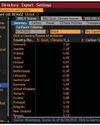
See Which Countries Are Falling Behind On Climate Change
Under the Paris Agreement, 190 countries and the European Union pledged to take steps to hold the global temperature rise to less than 2C (3.6F) from preindustrial levels—and preferably 1.5C.
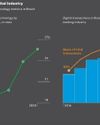
Billionaires Vie for the Future of Brazilian Finance
An escalating battle between two billionaires is upending the financial community in São Paulo, Latin America’s wealthiest city.
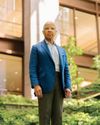
Ford Foundation's Darren Walker: ‘We Have to Get Uncomfortable'
DARREN WALKER, 62, disrupted his Wall Street life more than 25 years ago when he left what is now UBS Group AG to volunteer at a school and eventually pursue a career in community development and philanthropy. Since 2013 he’s been at the pinnacle of the philanthropic world as president of the Ford Foundation, created by the family of automaker Henry Ford during the Great Depression to advance human welfare.

Fueling the Ener Transition
I MAY BE BIASED, but some of the most important research and data on the Bloomberg terminal lies in one of its lesser-known functions: {BNEF }
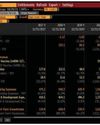
Dig Into Analysts' Estimates for Disruptive Companies
THE PANDEMIC ERA generated a whole wave of disruptive companies as it accelerated the introduction of new products and services in areas including artificial intelligence, digitization, electronic payments, online meeting platforms, and virtual currencies.
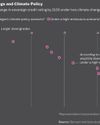
Climate Risks Come for Sovereign Credit
FOR YEARS climate scientists have warned about the ferocious wildfires and hurricanes that are now overwhelming many communities. Today alarms are ringing about a related financial danger: risks lurking within government bonds, the biggest part of the global debt market.

Responsible-Investing Pioneer Lydenberg Says ESG Needs An Upgrade
STEVE LYDENBERG’S passion for social change was inspired by anti-Vietnam War demonstrations, consumer boycotts, and the movement to divest from apartheid South Africa. But he didn’t take to the streets. Instead, Lydenberg turned to the world of finance to help catalyze societal change.

Engine No. 1's Grancio: ‘People Will Appreciate an Economic Argument'
ENGINE NO. 1 sent shock waves across corporate America in May when the fledgling investment firm won a boardroom battle with Exxon Mobil Corp., securing three seats on the oil and gas giant’s board after purchasing only about $40 million of its stock.
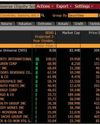
Find Out Which Companies May Ramp Up Payouts After Covid
AS THE PANDEMIC DISRUPTED business last year, many companies cut or suspended dividends. Which will boost their payouts when economies pick up again?
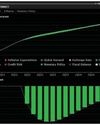
Get Into the Minds of Central Bankers as They Navigate Shocks
HAVE YOU EVER WONDERED how central bankers forecast the impact of shocks on the economy?